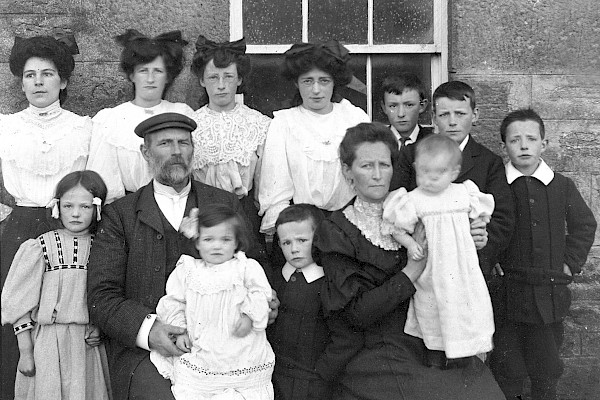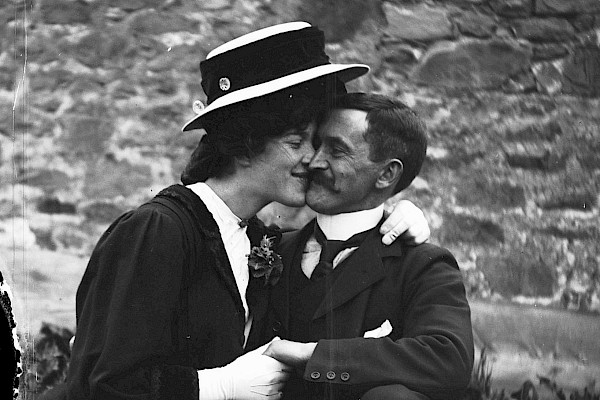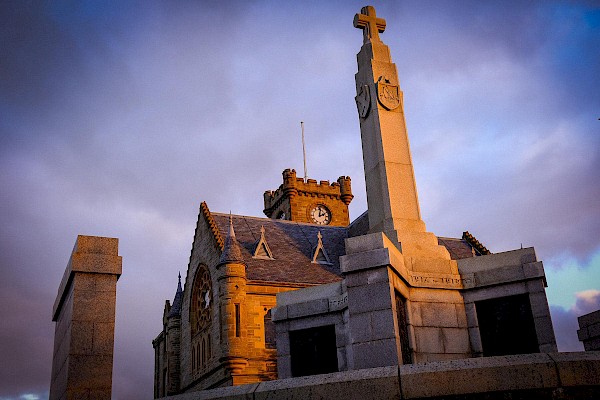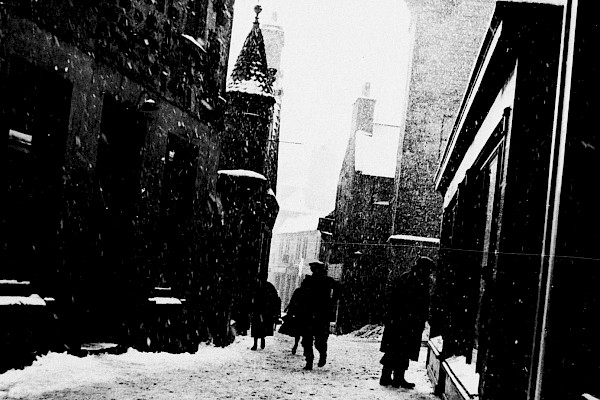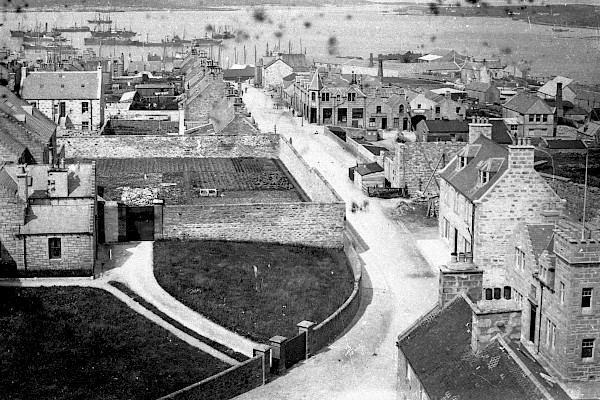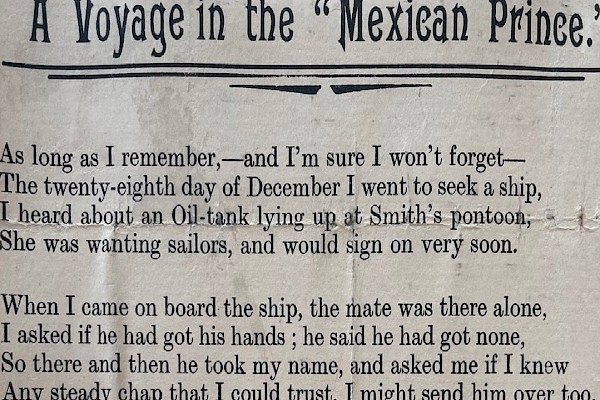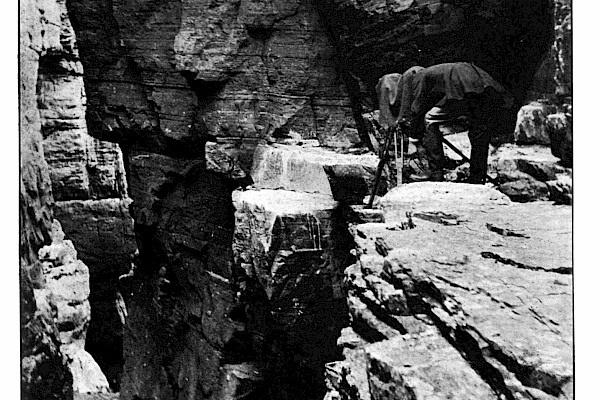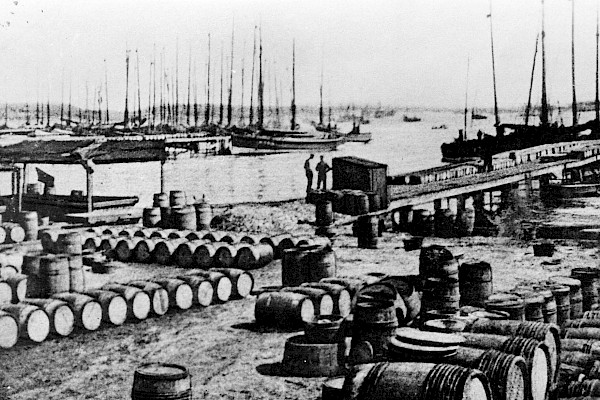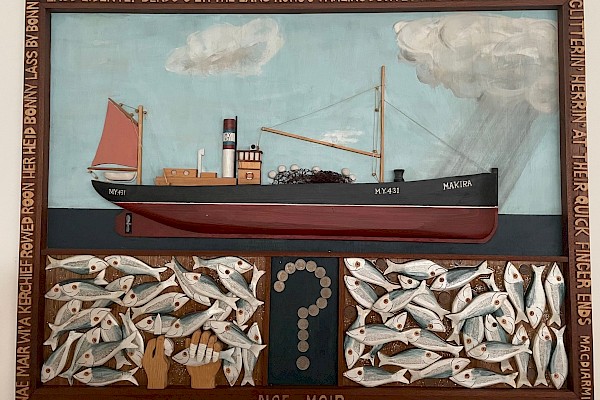The Fenian Raid on Unst
Shetlanders have long enjoyed jokes, pranks, and hoaxes, aka “plunkies.” Sometimes these have stretched to include British bogeymen. In 1977 someone at Sumburgh Airport convinced a friend that Idi Amin, the Ugandan dictator, was about to land there. This snowballed, the authorities became involved, and the perpetrator was fined £100 at Lerwick Sheriff Court.
Back in 1866 there were opportunities too. “Fenian” is a loaded term nowadays, and the use of it in certain circumstances can result in legal action in Scotland. In the 1860s the Fenians were a real body of people who wanted to establish an Irish republic. Needless to say, they were a British bête noire. They conducted real actions – assassinations and attempted incursions into Canada – but also caused an atmosphere of paranoia and panic. In early 1866 newspapers reported that Irish-Americans were building privateers in California. Later in the year, the Observer newspaper reported that a Fenian privateer had been seen in Faroe.
The Scotsman newspaper followed up the story on 6 August, reporting suspicious vessels at Faroe, including a report via the Spy, probably a Shetland Faroe smack, coming to Lerwick. Suspicious, but not necessarily the Fenian naval wing. In reality, the vessels were probably engaged in a dispute between Spain and Chile.
Somebody saw a chance to start something and wrote two letters about a Fenian onslaught on Shetland. “James Thomson” of Lerwick wrote to the Glasgow Herald. The newspaper published a piece on it on 9 August. Twelve boats, we are told, landed a considerable number of men armed with revolvers and cutlasses, who ransacked the shops, plundered the banks, and blew up the powder magazine of Fort Charlotte. But the Herald was sceptical, the sacking of Lerwick, they said, bears very strong marks of romance and may be an extremely exaggerated account of the doings of the supposed Fenian cruiser heard of a few days ago about the Faroe Islands.
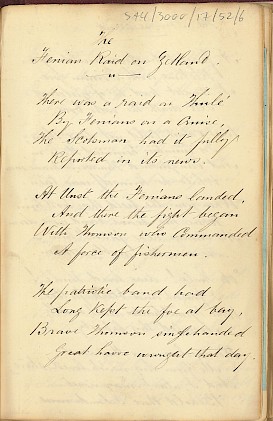
The other letter, by “Andrew Jamieson”, went to the Scotsman. There may well have been great joy at the Glasgow Herald when they saw the 9 August edition of the Edinburgh paper. The Scotsman had swallowed the story hook, line, and sinker. A raid on Unst, no less. In this one J. Thomson had been taken prisoner, and as many sheep as the boats could accommodate had been carried off, among other plunder and destruction. The kirk had been struck by two cannon balls. Then the raiding vessels headed off to Lerwick, and the Scotsman thundered that the privateers had committed acts of war against an outlying part of our dominions,[and] cannot be considered other than Fenian and hostile. Except, of course, nothing of the sort had happened.
The following day, the Scotsman had to eat humble pie, and published a retraction. Shetland had no telegraph service at the time, and it was difficult to make quick checks, especially for a place like Unst. It was slightly easier for Lerwick, and the Herald had been able to check with someone in Glasgow who had a letter from Lerwick of the same date as the hoax communication. Piratical warfare had gone unmentioned. Steps have already been taken to bring the perpetrator of the fraud to exposure and punishment, said the Scotsman.
The steps didn’t result in much, although the poet L.J. Nicolson wrote a humorous poem The Fenian Raid on Zetland. It became popular. James Johnson, (1885-1969) aka “Rasmie o Brettafield”, of Baltasound, Unst, did a notable recital of it. The archives hold various copies of it, including one handwritten by the antiquarian Gilbert Goudie. Whoever wrote the letters, however, remains unknown.



